Founding Story
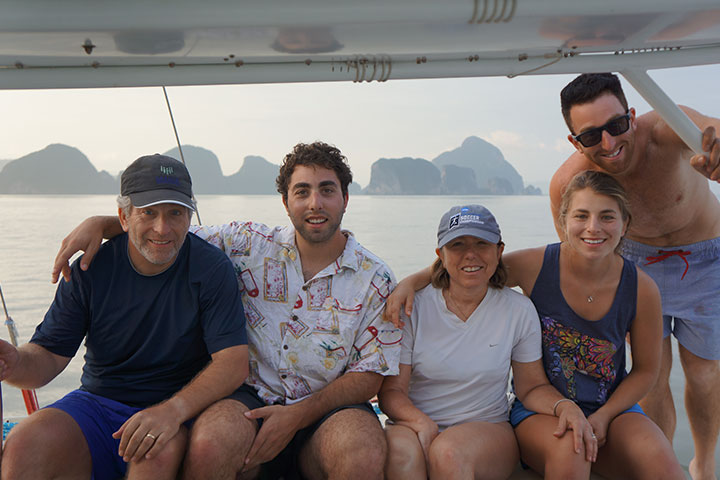
One day Debra Meyerson is...
A Stanford University professor, with an expertise in gender, diversity, identity and organizational change;
A happily married mother of 3 almost grown children;
Healthy, fit, and athletic;
An accomplished woman in the prime of life.
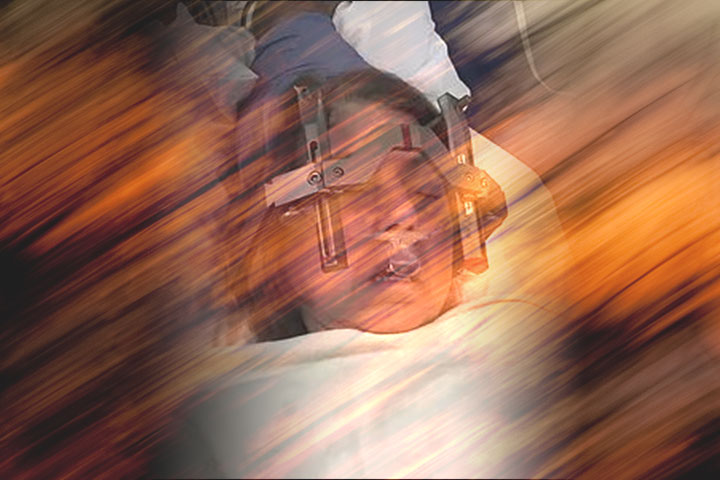
And the Next...
A severe stroke nearly killed Debra, and left her with a paralyzed right side and no speech at all.
A teacher, wife, daughter, mother and friend suddenly unable to play those roles at all.
A fiercely independent woman now forced to rely on others for almost every need.

For three years...
Debra pursued every avenue for therapy possible with a drive and work ethic that many therapists said they rarely see.
She worked hard and determined to get her old life back as quickly as she could; any and all setbacks from her stroke were viewed as temporary.
Debra could walk, albeit with a limp. Her right arm was still not functional. But most difficult, her speech was limited and came with great effort.
Debra had accomplished so much. She was independent. She could drive, travel on her own, take care of all her basic needs.

And then...
Debra reached the end of the runway for Stanford’s medical leave policy.
Still not able to do the full work of a professor, mostly because of her speech, Debra had to give up her tenured position -- and the career she loved and had spent decades building.
Debra had fought so hard to recover from the physical insults of stroke. Even if further improvements were still possible, Stanford’s decision forced Debra to acknowledge that life - and her identity as she knew it - was forever changed. This was a second trauma, invisible to most, that devastated her.
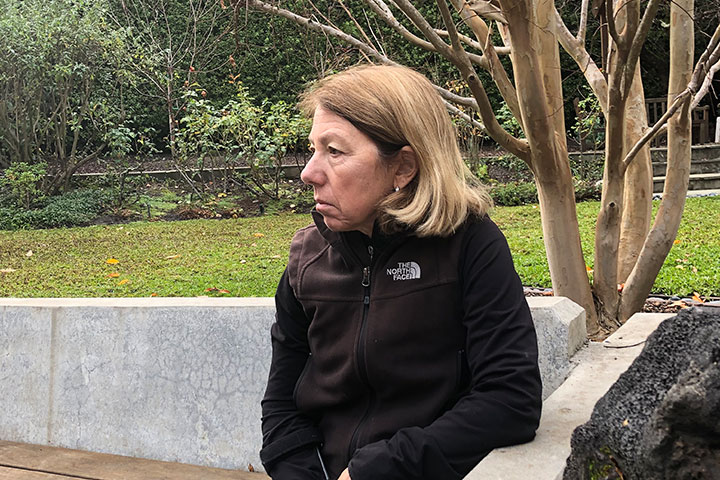
Who am I now?
That question haunted Debra, but also set her on a path of self-discovery. Her academic expertise in identity gave her a unique lens and framework through which to evaluate her own dramatic life changes. As a social scientist, she wanted to understand if other survivors experienced a similar crisis of identity. With her family’s support, she decided to research and write a book.
At first, candidly, a major goal of the book was to “prove she was back.” That in a slightly different form, she could still be an academic. But the writing process became its own journey-- and a very powerful form of therapy. Debra was forced to think deeply about her values and her new reality. She allowed herself to grieve what she had lost. And that allowed her to begin looking forward. She also realized how important it would be to understand why she had made choices throughout her life and career in order to find a path toward living happily despite new constraints.
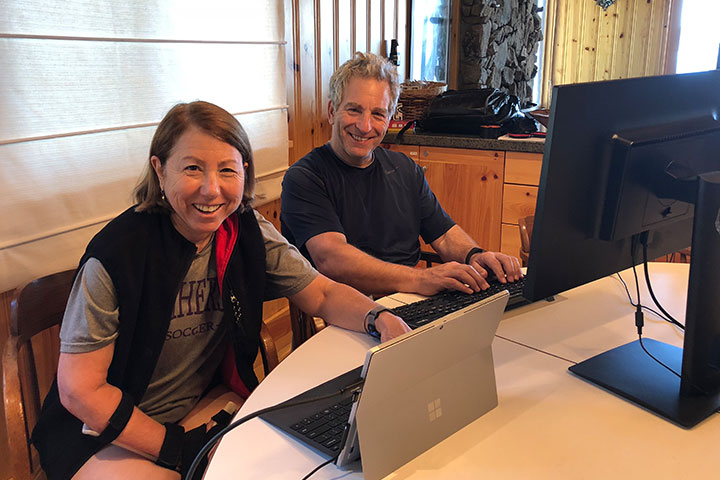
While Debra had previously authored dozens of articles and several books independently, she was now very dependent on others to help her produce a book. She knew what she wanted to say, but her writing -- transforming thoughts into written or spoken word -- was severely limited by her aphasia.
At first Debra worked with her husband, Steve, and then with Sally Collings, who helped conduct interviews and prepare early content. Lots of other family and friends pitched in along the way. In the final drafting, she worked most closely with her son, Danny Zuckerman, the book’s official co-author, with Steve still in support. Five years after Debra’s decision to write a book, Identity Theft- Rediscovering Ourselves after Stroke (Andrews McMeel Publishing, May 2019) was released.
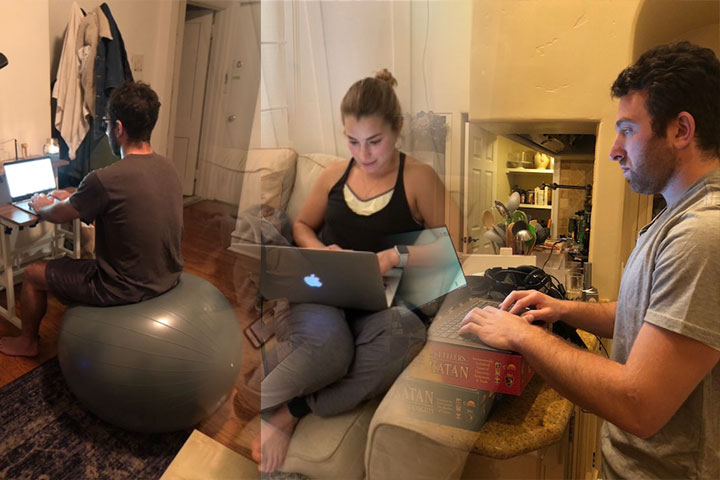
For Debra, relying on others throughout the writing process was incredibly frustrating, and she almost pulled the plug on several occasions. What kept her going was her growing understanding of the emotional challenges faced by other survivors and families, and the lack of resources to support them. She believed this book could help people.
Debra also knew she was extremely lucky to have a strong, supportive network of family and friends, more financial resources than most, and so many other advantages. But even with those advantages, her own emotional journey was brutal.
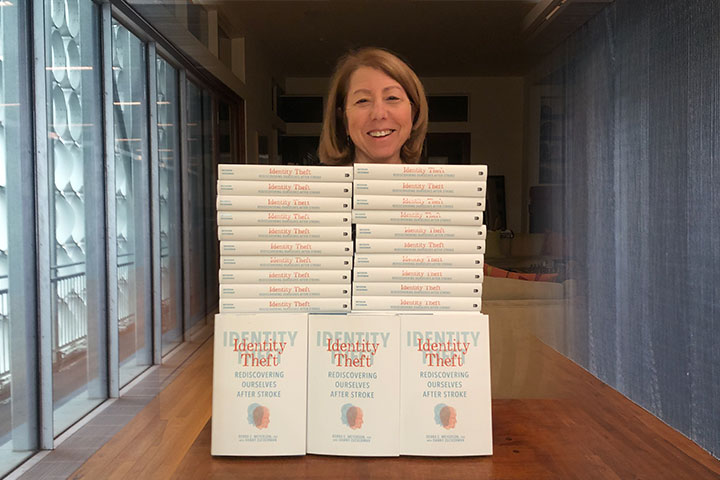
Debra’s experience and the research behind Identity Theft revealed a critical gap in the current medical support system. Survivors, and equally importantly their supporters, need more resources and guidance to assist with the emotional impact after stroke. This includes the invisible, often painful but crucial work required to consciously and deliberately rebuild one’s identity and a rewarding life.
Debra Meyerson and her husband Steve Zuckerman founded Stroke Onward to further the work begun through Identity Theft. Join them as they shine a spotlight on the emotional journey and redefine recovery. Recovery should also be about supporting a person to rebuild a happy and productive life, and a healthy sense of self, in the face of whatever capabilities can and cannot be regained.
